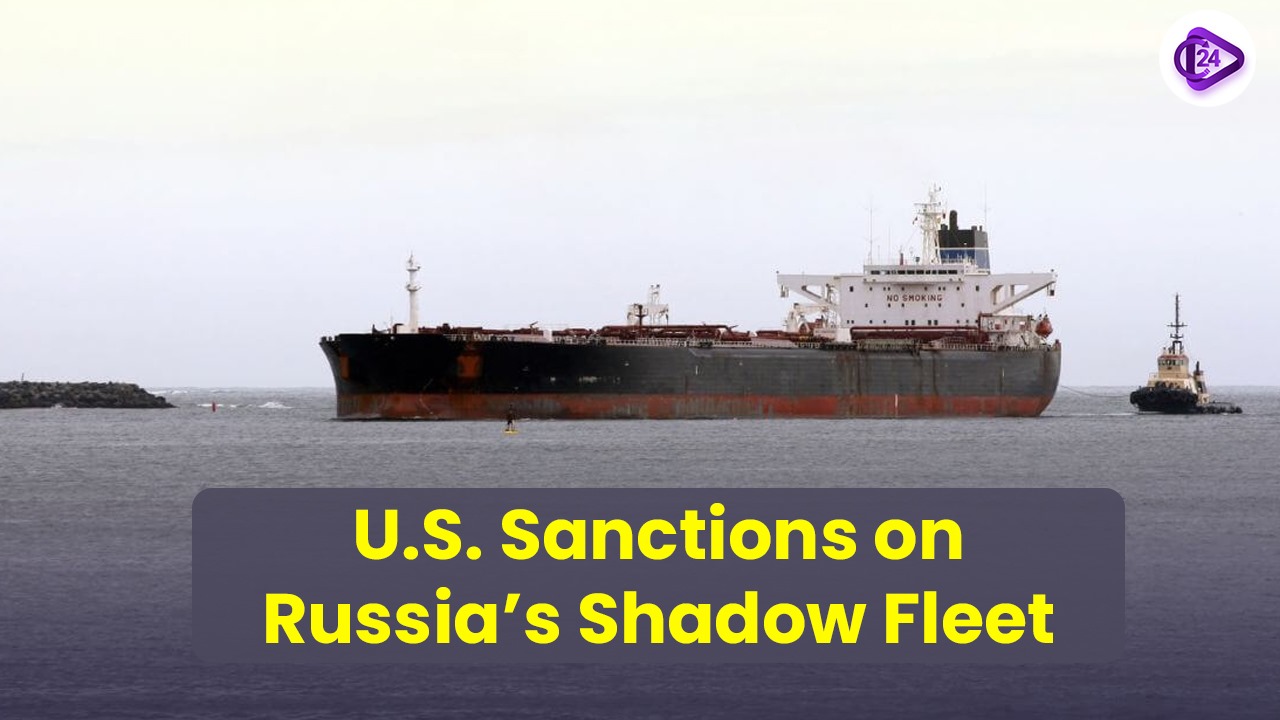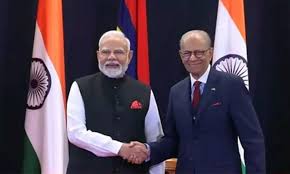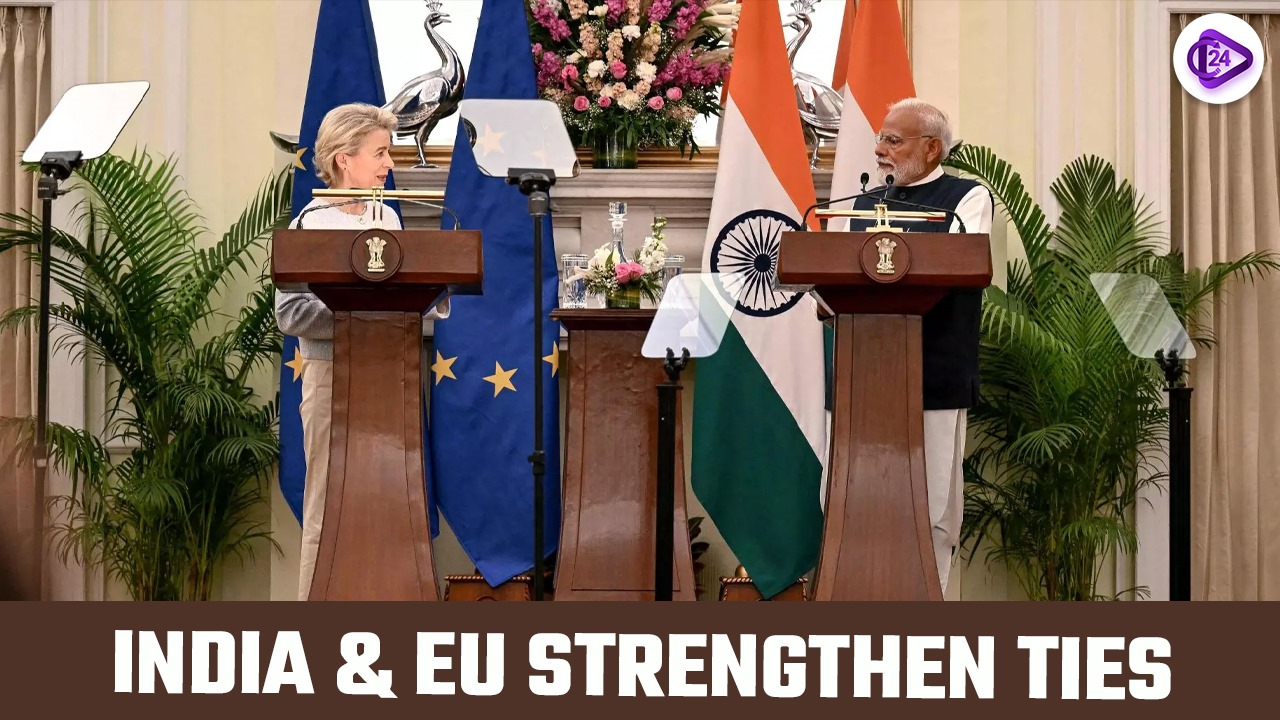
Washington has sanctioned Russia’s so-called Shadow fleet, a collection of vessels that allegedly help transfer Russian oil. At the same time, despite this step to potentially limit Russia’s oil earnings, it has risks for nations such as India that depend on buying Russian crude oil. The sanctions could impune supply chains, affect shipping costs, and could disturb India’s oil price edge.
What is the Shadow Fleet?
The Shadow fleet means a fleet of tankers that was formerly used by Russia to transport its oil indirectly or anonymously. Of these tankers, some are owned some companies whose actual owners are not easily identifiable as a result of incorporation. The fleet is engaging in fraudulent activities that include: ship-to-ship transfers at sea to mask the origin of the oil, and turning off AIS (Automatic Identification System) to avoid detection. The company is well known because the Shadow fleet involves ships flying the flags of countries with weak prescription standards and aging ships that are not attractive for typical operation because of the high price for maintenance and low productivity.
Key Points:
-
Opaque Ownership: Using some layers of corporate ownership, the vessels themselves can be owned by other companies or other shell corporations.
-
Ship-to-Ship Transfer: Many parts of Africa receive refined oil products from ships at sea, and it is very hard to track the origin of the oil.
-
Flags of Convenience: These vessels fly flags of countries where legal standards are comparatively low to allow easy tracking of their functioning.
-
Aging Fleet: The Shadow fleet on average is frequently made up of older less productive vessels which are costly to operate.
-
Deceptive Practices: It remains in the fleet’s discretion to switch off the AIS, forge shipping papers, or provide gimmick readings on the source of the shipment.
Impacts of the Shadow Fleet
-
Environmental Risks: This remains a threat since most of the already aging vessels also switch off their AIS leading to accidents such as oil spillages.
-
Global Security: Operational secrecy of the shipping industry may lead to the perpetration of crimes like smuggling, and human trafficking and hence reduce security.
-
Economic Impact: Shadow fleet-related import-dependent economies may suffer some economic impacts especially because of imposed sanctions that limit shipment from the Shadow fleet.
The Effects of Sanctions on Indian Oil Import
India is a major importer of Russian crude oil, and the sanctions targeting the Shadow fleet could have several effects:
-
Supply Chain Disruption:
-
Since there are restrictions regarding vessels, India might find itself somewhat of a bottleneck when it comes to getting Russian oil since it can run into shortage issues or delays.
-
-
Increased Shipping Costs:
-
The disequilibrium between demand and supply in the shipping sector may lead to high shipping expenses, therefore, importing oil will be costly to India.
-
-
Diminished Price Advantage:
-
Sanctions will reduce the relative margins that India enjoyed by acquiring Russian crude cheaply.
-
-
Cascading Impact on Refineries:
-
The interruption of crude oil importation could affect the operations of oil refineries in India, issues in fabricating petroleum products consequently export problems, particularly to Europe.
-
-
Greater Dependence on the Middle East:
-
India could be compelled to depend more on Middle East supplies which could be costly and sometimes pose real supply risks.
-
Suggestive Measures for India
To mitigate the impact of U.S. sanctions on Russia’s Shadow fleet, India could adopt several strategic measures:
-
Diversification of Energy Sources:
-
India should work towards cutting the import of crude oil by exploring the different opportunities that are available in renewable resources to add more products to the energy basket.
-
-
Domestic Energy Production:
-
The country can tap other sources such as improved hydrocarbon exploration to increase domestic energy production. The policy on Hydrocarbon exploration Licensing is available for liberalizing hydrocarbon exploration and increasing the domestic output of oil.
-
-
Engagement in Diplomatic Channels:
-
India should negotiate with as United States in a bid to seek exemption from the sanctions and beneficial terms therein. Moreover, there are areas of investment in the oil sector, where India could improve relations with the Middle Eastern states androgenous subsidized oil and stabilize imports.
-
Conclusion
The intention of the US-imposed sanctions on the Russian Shadow fleet is to reduce Russia’s oil revenue but these are problems for India in the realms of crude oil importation, price determination, and economic predictability. For these challenges, India will indeed have to follow a multifaceted nuclear energy policy strategy that involves diversification of source of energy supply, increase in indigenous energy production, and diplomatic maneuvering with the U.S. as well as the Middle Eastern countries. In that way, India will remain sufficiently equipped to cover its energy demand, so the potential threats of these sanctions will not affect it severely.



 What Were The Reasons That Led To The Arrest Of Ex-Philippine President Rodrigo Duterte?
What Were The Reasons That Led To The Arrest Of Ex-Philippine President Rodrigo Duterte? India-Mauritius Relations: Strengthening Strategic and Cultural Ties
India-Mauritius Relations: Strengthening Strategic and Cultural Ties India’s Growing Economic Footprint in Dubai: A New Era of Bilateral Ties
India’s Growing Economic Footprint in Dubai: A New Era of Bilateral Ties New Delhi to Host 20-Nation Security Meet: Key Agendas and Implications
New Delhi to Host 20-Nation Security Meet: Key Agendas and Implications India's Legacy in UN Peacekeeping: Leadership, Commitment, and Sacrifice
India's Legacy in UN Peacekeeping: Leadership, Commitment, and Sacrifice India- Belgium’s Defence Cooperation in Indo-Pacific region
India- Belgium’s Defence Cooperation in Indo-Pacific region EU and India: Strengthening Ties Amidst Global Shifts
EU and India: Strengthening Ties Amidst Global Shifts Bhutan’s Strategic Role in India’s Regional Diplomacy: Budget 2025-26 Insights
Bhutan’s Strategic Role in India’s Regional Diplomacy: Budget 2025-26 Insights Blue Ghost Lunar Landing: Firefly Aerospace’s Historic Moon Mission
Blue Ghost Lunar Landing: Firefly Aerospace’s Historic Moon Mission India-EU Strategic Partnership: Advancing Trade, Security, and Economic Cooperation
India-EU Strategic Partnership: Advancing Trade, Security, and Economic Cooperation






